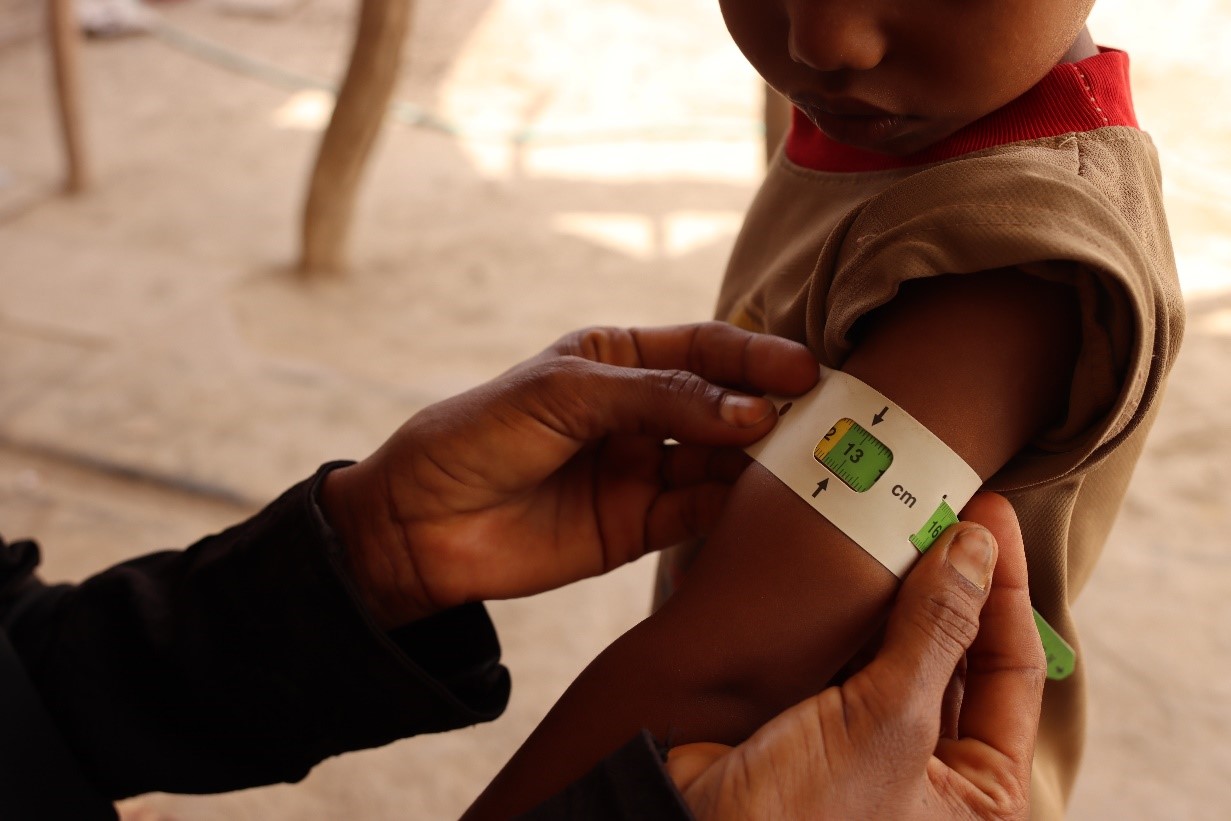Recent air strikes by the United States and the United Kingdom on Houthi-controlled areas in Yemen, including the capital Sana’a and the port city of Hodeida, are threatening the ability of humanitarian organisations to deliver supplies and raising major concerns about a potential escalation of armed violence in one of the world’s poorest countries. The operation was carried out in response to several weeks of attacks by the Houthis on merchant ships from countries allied with Israel in the Red Sea.
In 2023, 21.6 million people, or 75% of the population, needed humanitarian assistance in Yemen. The deterioration of the economic situation, the depreciation of the currency, fuel shortages, the rise in the price of imported food products and the lack of stable incomes have made basic needs unaffordable for a large part of the Yemeni population. The ongoing hostilities could jeopardise the safety of civilians and further worsen their living conditions, particularly by threatening food and medical supplies.
“Yemen is almost entirely dependent on food and medical imports, which are largely transported via the ports of Hodeida and Aden, explains Anne Garella, Director of Operations for Action Against Hunger in the Middle East. “However, with growing tensions in the Red Sea, humanitarian organisations are finding it increasingly difficult to bring in medicines, which are essential to the survival of the population.
“Supply costs have more than doubled in the space of a few weeks and we are now practically out of medicine stocks. With the current instability, we cannot guarantee they will be replenished within a reasonable time. This situation, if it were to continue, could have dramatic consequences, given that around 20 million people are in need of healthcare assistance in Yemen”.
In addition, a reduction in food supplies could increase food insecurity for millions of Yemenis. In 2023, 17 million people were food insecure, while the rate of acute malnutrition among women and children in Yemen remained among the highest in the world, with 1.3 million pregnant or breastfeeding women and 2.2 million children under the age of 5 requiring treatment for acute malnutrition.
Despite the scale of the needs, the crisis in Yemen remains underfunded. In December 2023, the drop in international funding led the World Food Programme (WFP) to announce a “pause” in the General Food Assistance (GFA) programme, with an impact on 9.5 million food-insecure people in northern Yemen. The increase in transport and insurance costs, linked to the instability in the Red Sea, has a direct impact on humanitarian programmes, as these costs will have to be deducted from the budgets allocated to programmes.
In addition, numerous restrictions and bureaucratic obstacles continue to hamper rapid and safe access for humanitarian aid in Yemen, particularly in the most remote areas. Since the strikes carried out by the United States and the United Kingdom on 12, 13 and 16 January, many humanitarian organisations have had to curtail their operations for security reasons.
“In October 2022, a promising dialogue began between parties involved in the conflict. This dialogue led to a reduction in hostilities, making it easier for people in need to access our services and enabling our teams to operate with greater safety. Recent events lead us to fear that this lull will be short-lived,” adds Anne Garella.
About Action Against Hunger in Yemen
- In Yemen, Action Against Hunger has worked to improve the health and nutritional status of vulnerable populations by strengthening access to, and quality of, primary health and nutrition services in health centres and through its mobile teams – including through the provision of medicines, medical equipment, and training.
- Action Against Hunger has also rehabilitated health infrastructure and medical waste management systems and supported the construction of community water sources to ensure access to clean water and sanitation in health centres and vulnerable communities. Support for infant and young childcare and feeding practices was also provided. To improve access to drinking water, Action Against Hunger focuses on building solar-powered water supply systems in health facilities and communities.


